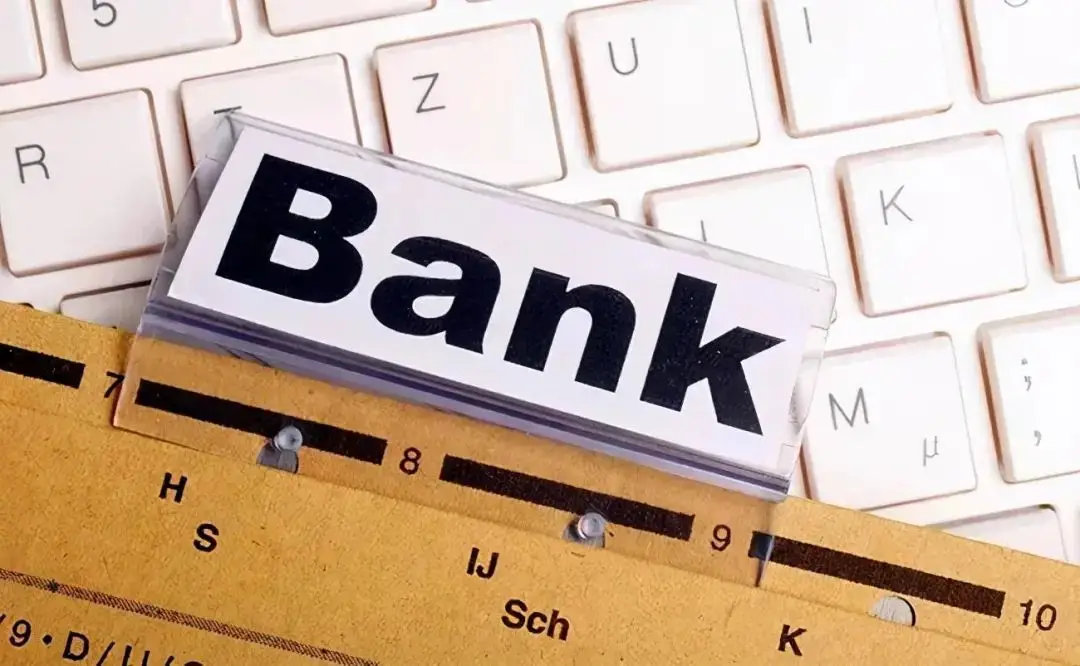- EasyCard
- Trade
- Help
- Announcement
- Academy
- SWIFT Code
- Iban Number
- Referral
- Customer Service
- Blog
- Creator
How to open a personal bank account in Hong Kong?
Hong Kong, as a globally renowned financial center, has attracted countless people to open bank accounts here due to its superior tax system and international financial environment. Whether it is for cross-border investment, foreign currency storage, or convenient management of personal funds, Hong Kong bank accounts can provide a flexible and secure solution. With the advancement of globalization, more and more people choose to open personal accounts in Hong Kong.

However, although the demand for opening a bank account in Hong Kong is constantly increasing, the requirements of major banks for account opening are also gradually increasing, especially in terms of account opening materials and fund review. Therefore, if you plan to open a personal account in Hong Kong, it is not enough to only prepare some basic identity documents. Next, the editor will take you through the entire account opening process to help you prepare the necessary materials in advance and avoid pitfalls.
Required information for applying for a personal bank account in Hong Kong
Opening a personal bank account in Hong Kong is not as simple as we think, especially in the preparation of materials. Different banks may have different requirements for account opening materials, but basic materials are essential. Now, let’s take a look at what main materials you need to prepare.
Identity documents
First of all, the most basic thing is a valid identity document. Usually, banks will require a passport or ID card as the main identity verification document. No matter what nationality you are, holding a valid passport can successfully complete the identity verification. Remember, the photo and personal information on the document should be clearly visible.
Proof of address
Most banks require a valid proof of residential address. This type of document is usually a bank statement, credit card statement, or recent utility bill. Whether it is paper or electronic, as long as your name and address are clearly marked on it, it can serve as a valid proof of address. If you don’t have a bank statement on hand, you can use a mobile phone bill or other utility bill.
Proof of funds
If you plan to deposit funds into an account or have certain investment needs, the bank may require proof of the source of funds. This can be a bank Certificate of Deposit or other forms of income proof. If you have an investment background, the bank may also require you to provide some investment records, such as stock trading records, to prove the source of funds.
Credit or debit card bill
Some banks may require applicants to provide credit card statements as proof of financial strength. If you don’t have a credit card, providing a debit card statement is also a good option. It should be noted that your name and address must be displayed on the statement so that the bank can confirm that you are the account holder.
Proof of Investment (if applicable)
For customers who plan to invest or trade in Hong Kong, banks may require proof of past investments. This can be stock transaction records or investment records on other financial platforms. If there is no paper transaction record, many banks will also accept mobile phone display, provided that the displayed information includes your name and account info.
Hong Kong Bank Account Opening Process
The process of opening a Hong Kong bank account is actually not complicated, but it is very important to understand each step in advance to ensure a smooth account opening. Below, we will go through the standard process of opening a Hong Kong bank account in detail.
Choose a bank
There are many banks in Hong Kong that offer personal account opening services, including HSBC, Hang Seng Bank, Standard Chartered, etc. When choosing a bank, in addition to considering the bank’s reputation, you should also pay attention to factors such as the range of services it provides, fees, and account types. If you plan to conduct cross-border transactions or investments, choosing a bank with relevant Financial Services capabilities will be more convenient.
Appointment for account opening
Most Hong Kong banks require an appointment before opening an account. You can make an appointment online through the bank’s official website or directly call the bank staff to arrange a suitable time. Some banks also offer online appointment services, and some verification can even be completed through remote video interviews.
Go to Hong Kong to open an account
Although many banks now support online account opening, most banks still require you to personally go to Hong Kong to complete the account opening procedures. Usually, you need to go to the bank branch, bring all relevant documents, and be prepared to be questioned and verified by bank staff. If you are temporarily unable to go in person, some banks also offer mainland witness account opening services, which can be done at designated locations.
Fill out the application form
After arriving at the bank, you need to fill out an account opening application form. This part is usually provided by bank staff and filled out under their guidance. The form usually includes your personal information, contact information, account opening purpose, etc. Make sure the information is accurate when filling it out.
Interview and review
During the account opening process, the bank usually arranges a face-to-face interview with the applicant to understand the specific purpose and source of funds for opening the account. The bank will review your identity, documents, and the purpose of the account. If the bank deems it necessary, it may further inquire about some details. Make sure that the materials you prepare are complete and true, so that you can pass the review smoothly.
Account activation and usage
After approval, the bank will open a personal account for you and inform you how to activate the account. The activation process is usually simple. You may need to set up access permissions for online or mobile banking and complete the initial account operation. After the account is activated, you can start using your Hong Kong bank account for daily deposits, withdrawals, transfers, and investment operations.
Notes on Using a Hong Kong Bank Account
After successfully opening an account, having a Hong Kong bank account does not mean everything is over. After the account is activated and put into use, there are still some things to pay special attention to to ensure that you can manage the account smoothly and safely. Here are some important things you need to pay attention to:
Account management and operation
Once the account is opened, it is very important to be familiar with the account management function. Most Hong Kong banks provide online banking and mobile banking services. You can check your account balance, transfer money, invest and manage finances at any time. Regularly check your account transaction details to detect abnormal transactions in a timely manner and avoid unauthorized fund changes. If you find any unknown transactions in your account, you should contact the bank immediately for processing.
Compliance with use
When opening a bank account in Hong Kong, it is necessary to comply with local financial regulations. Hong Kong’s financial system attaches great importance to Anti Money Laundering (AML) and Counter-Terrorism Financing (CFT) measures. Therefore, your account cannot be used for any illegal activities, such as money laundering, tax evasion, etc. Banks will monitor large fund transactions to ensure that all transactions comply with regulations. Avoid frequent large transactions, especially transfers that cannot explain the source of funds.
Account fees
Hong Kong bank accounts usually charge certain fees, including account management fees, transfer fees, withdrawal fees, etc. The fees charged by each bank vary, so it is best to understand all possible fee items before opening an account. Especially when conducting cross-border remittances or investment transactions, fees may affect your capital flow costs. Understanding these fees and planning the use of funds reasonably can effectively avoid unnecessary expenses.
Regularly check account security
Ensuring the security of your account info is also an important task. Use the two-factor authentication function provided by the bank, update passwords regularly, and avoid banking operations on insecure devices or networks. In addition, avoid easily revealing bank cards or account info to others to protect your account from fraud and theft.
More convenient global multi-asset trading wallet - BiyaPay
For those who plan to invest and manage their finances after opening a Hong Kong bank account, using a multi-asset trading wallet like BiyaPay can make asset management more convenient and efficient.
First of all, BiyaPay currently supports real-time exchange rate inquiry and exchange of more than 30 legal currencies and more than 200 digital currencies, effectively breaking down the barriers between legal currencies and digital currencies. Through BiyaPay, you can not only make local remittances in most countries and regions around the world, but also have low transaction fees, fast arrival, and most importantly, no limit on the amount.
This means that whether it is the cross-border transfer of personal assets or the daily flow of funds, BiyaPay can provide a flexible and efficient solution. Moreover, BiyaPay supports same-day remittance and arrival, which can bring great convenience to your fund management.
In addition, BiyaPay also provides a variety of investment services, covering fields such as US stocks, Hong Kong stocks, options, and digital currencies.
If you already have an overseas bank account, you can directly link it to your BiyaPay account for investment. It can not only serve as a tool for depositing and withdrawing funds, allowing you to easily transfer funds to other securities firms for investment, but also directly perform Asset Allocation through BiyaPay, helping you achieve cross-market and cross-asset class investment management.
Generally speaking, although there are certain requirements and procedures for opening and using a Hong Kong bank account, as long as you are well prepared and follow compliance regulations, you can easily enjoy the convenience and advantages brought by the Hong Kong financial system.
*This article is provided for general information purposes and does not constitute legal, tax or other professional advice from BiyaPay or its subsidiaries and its affiliates, and it is not intended as a substitute for obtaining advice from a financial advisor or any other professional.
We make no representations, warranties or warranties, express or implied, as to the accuracy, completeness or timeliness of the contents of this publication.




Contact Us
Company and Team
BiyaPay Products
Customer Services
is a broker-dealer registered with the U.S. Securities and Exchange Commission (SEC) (No.: 802-127417), member of the Financial Industry Regulatory Authority (FINRA) (CRD: 325027), member of the Securities Investor Protection Corporation (SIPC), and regulated by FINRA and SEC.
registered with the US Financial Crimes Enforcement Network (FinCEN), as a Money Services Business (MSB), registration number: 31000218637349, and regulated by FinCEN.
registered as Financial Service Provider (FSP number: FSP1007221) in New Zealand, and is a member of the Financial Dispute Resolution Scheme, a New Zealand independent dispute resolution service provider.



















